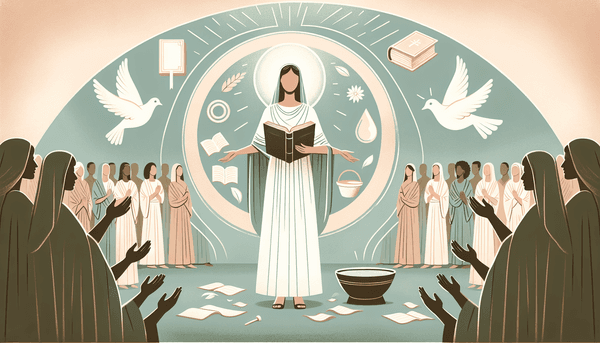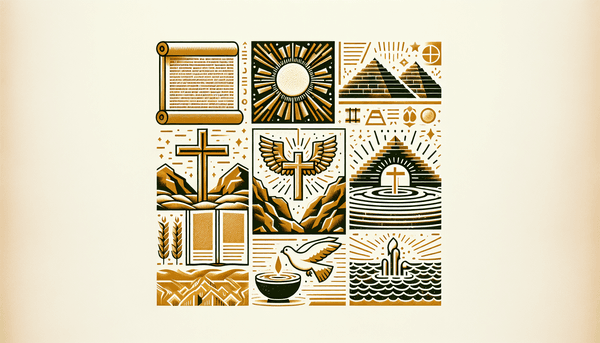The Wisdom of Humility in Proverbs 28
In the tapestry of Proverbial literature, Proverbs 28 serves as a stark reminder of the stark differences between pride and humility. A person who conceals their wrongdoings may find temporary respite, yet true prosperity eludes them; conversely, those who confess and renounce their transgressions embrace the promise of mercy (Proverbs 28:13). The scripture underscores the downfall that often accompanies pride, with Proverbs 16:18 warning of the destruction that precedes a fall, and Proverbs 11:2 equating humility with the acquisition of wisdom. Living a life of integrity and righteousness is not only a moral imperative but also a conduit for blessings, as highlighted in Proverbs 28:6 and 28:20, which affirm the abundance and security that come from such a path (Proverbs 10:9). The reverential fear of the Lord, a theme that permeates biblical wisdom literature, is presented as a fountain of blessing (Proverbs 28:14), reinforcing the call to seek first the kingdom of God (Matthew 6:33) and to acknowledge that the fear of the Lord is the very foundation of knowledge (Proverbs 1:7).
The Role of Women in Biblical Leadership
The biblical narrative is rich with instances of women who not only participated in but also led significant events that shaped the course of history. Deborah stands out as a judge and prophetess, wielding considerable influence and authority during a critical period in Israel's story (Judges 4-5). Queen Esther, with her remarkable wisdom and bravery, navigated the treacherous political landscape to secure the survival of her people (Esther 4-5). Mary, the mother of Jesus, is celebrated for her faith and the profound theological insights expressed in her Magnificat (Luke 1:46-55). These accounts, alongside others, offer a counter-narrative to the restrictive interpretations of passages like 1 Timothy 2:12, which some cite as limiting women's roles in teaching. Instead, scriptures like Galatians 3:28 and the commendation of Phoebe as a deacon in Romans 16:1-2, provide a more inclusive understanding of women's roles in the early church.
Reconciling Scriptural Passages on Women's Roles
The dialogue around women's roles within the Christian faith is enriched by a close examination of the cultural and historical contexts of the scriptures. While 1 Timothy 2:12 appears to restrict women's authority, other passages offer a broader perspective. For instance, the New Testament records Priscilla, alongside her husband Aquila, as teaching Apollos, an influential preacher, which can be seen as indicative of early church support for women in ministry (Acts 18:24-26). Similarly, the Old Testament celebrates Deborah's leadership and her role as a judicial and spiritual leader of Israel (Judges 4:4). To fully grasp the context of these figures, one must also understand the Jewish roots and prophetic role of Jesus, as these are integral to the Christian faith and its development. Furthermore, the wisdom literature contributes to this conversation, with Proverbs 31:26 depicting a woman who speaks with wisdom and faithful instruction. These examples provide a nuanced understanding of the roles women can play within the faith community, reflecting a scriptural legacy that honors their contributions and leadership.
Conclusion
This exploration of Proverbs 28 and the accounts of women leaders in the Bible underscores the enduring relevance of humility and the affirmation of women's roles in faith-based leadership. The wisdom literature of the Bible, with its emphasis on humility, calls us to a life of character marked by integrity, righteousness, and a deep reverence for the divine. Concurrently, the stories of Deborah, Esther, and Mary, among others, demonstrate the significant contributions women have made—and continue to make—in shaping the narrative of faith. These principles and examples remain as guiding lights for contemporary discussions on leadership and gender roles within the church and beyond. For further reflection on the impact of scriptural wisdom in our daily lives, consider reading our exploration of finding comfort and guidance in scripture.
FAQ
Q: How does humility lead to obtaining mercy as mentioned in Proverbs 28?
A: Proverbs 28:13 teaches that by acknowledging and forsaking one's transgressions, individuals demonstrate humility and contriteness, which are qualities that align with God's desire for His people to recognize their need for His mercy and grace. This humility opens the way for God's forgiveness and mercy.
Q: Can you provide examples of women in leadership roles in the Bible?
A: Yes, the Bible mentions several women in leadership roles, such as Deborah, a judge and prophetess in the book of Judges, and Esther, who showed great leadership in saving her people. Mary, the mother of Jesus, is also recognized for her significant role.
Q: What verses are Deborah in?
A: Deborah is mentioned primarily in Judges 4 and 5, where her role as a judge and prophetess of Israel is described.
Q: Should women be able to preach?
A: This question is theologically debated within Christianity. While some passages, like 1 Timothy 2:12, suggest restrictions on women teaching, there are also examples of women in significant roles of leadership and prophecy in the Bible. The topic is complex and often interpreted through the lens of cultural context and the overarching biblical themes of equality and love.






